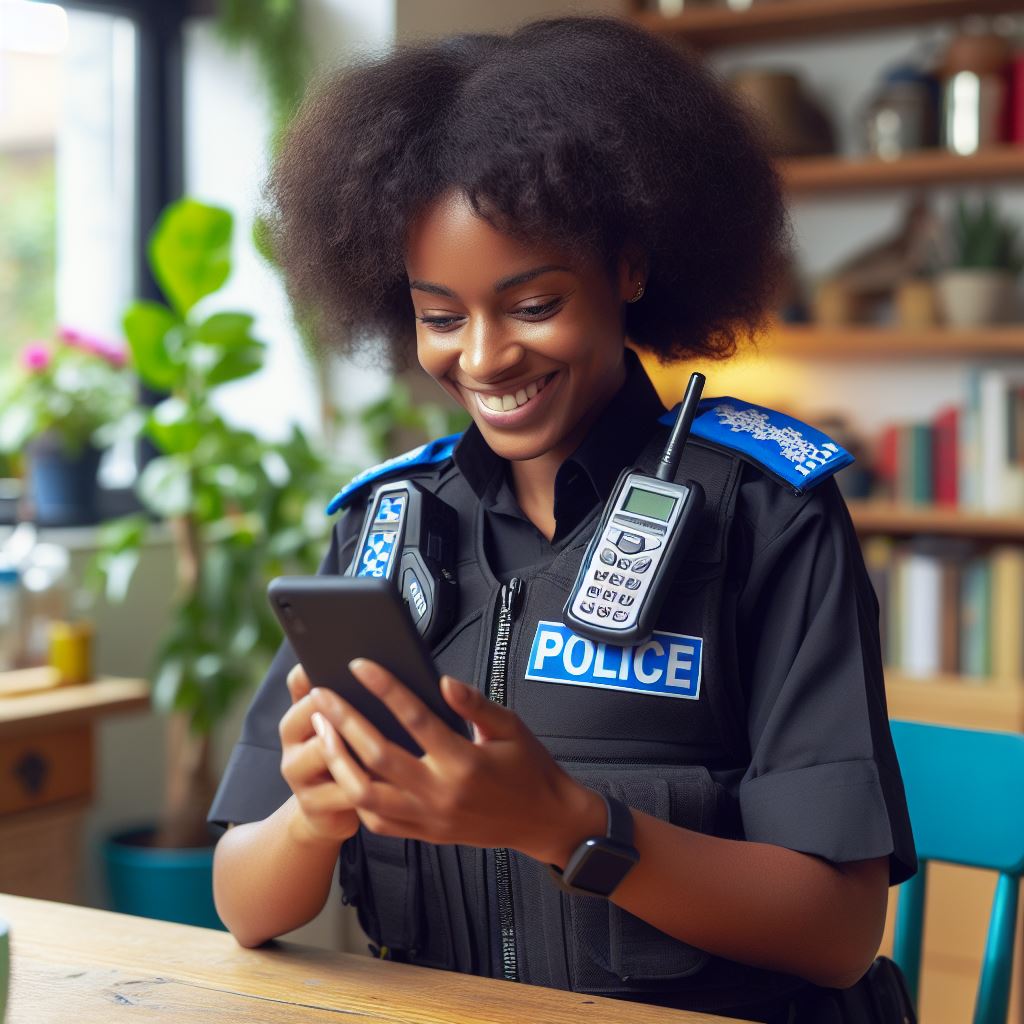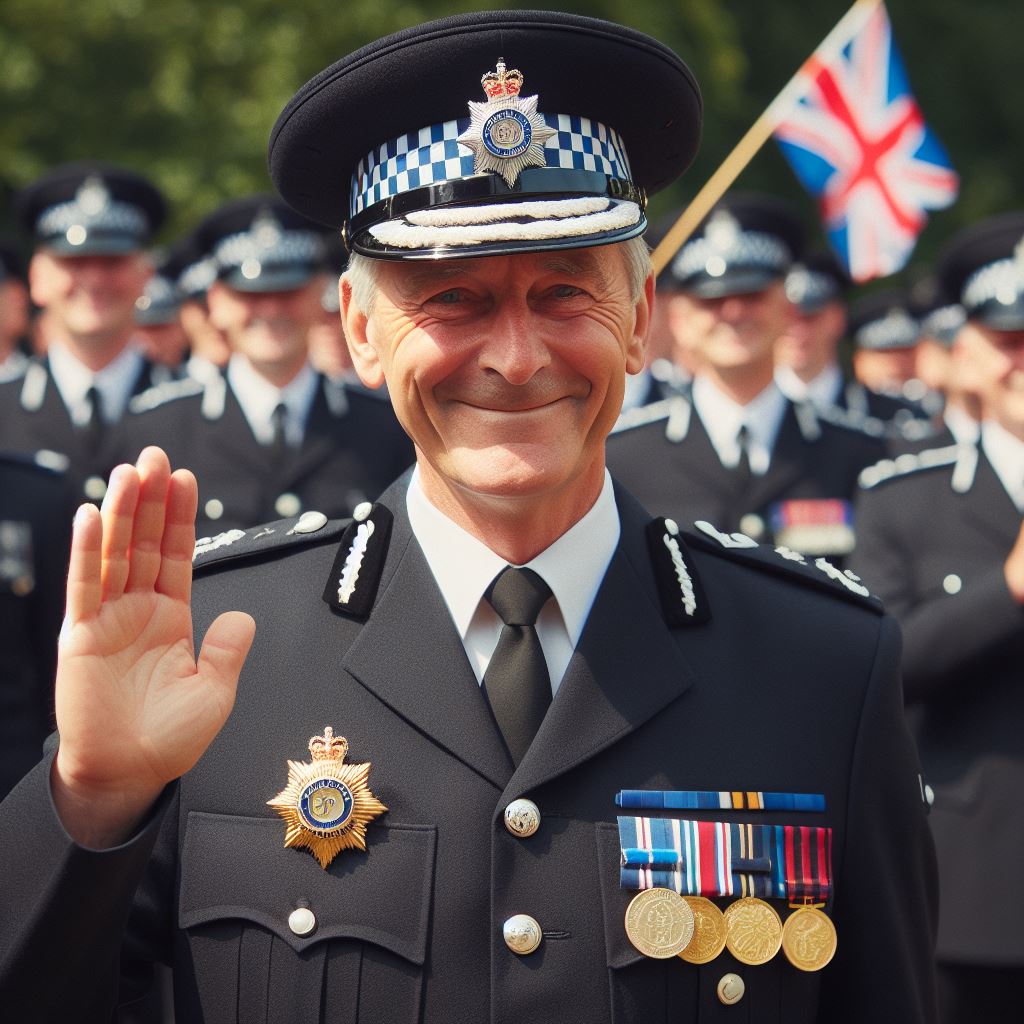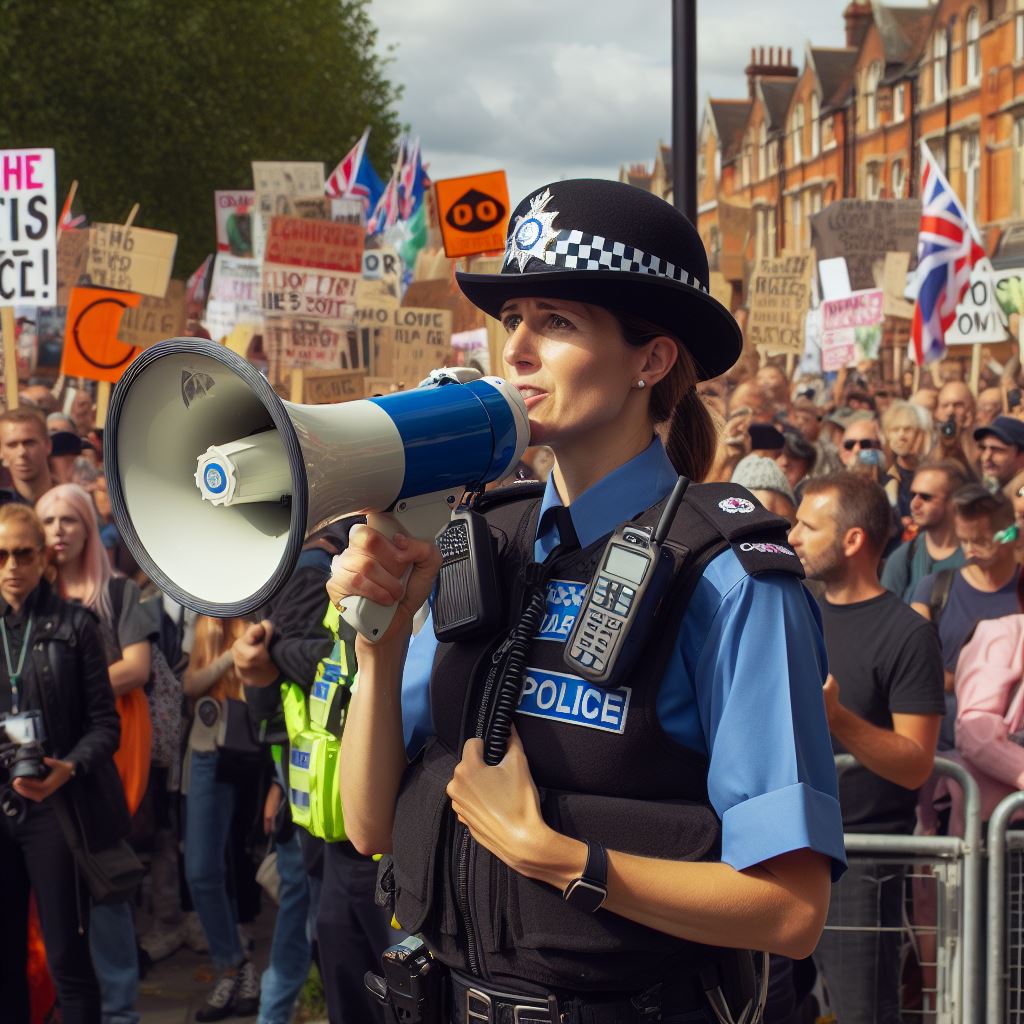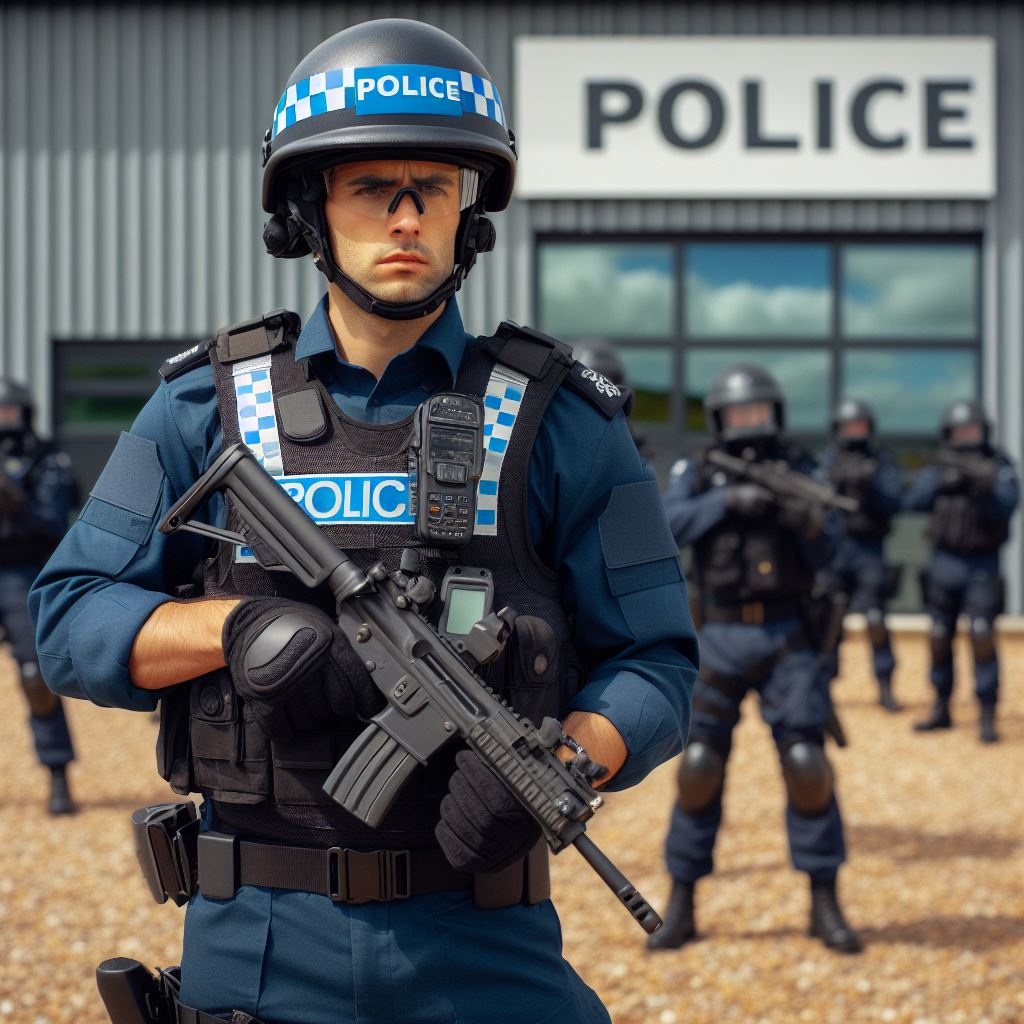Introduction
Social media, a digital tapestry woven by interconnected platforms, has surged in popularity, transforming global communication landscapes.
This evolution marks a pivotal moment in the realm of UK policing, ushering in challenges and opportunities.
As we embark on this exploration, understanding social media’s essence is paramount.
It encompasses diverse digital platforms enabling content creation, sharing, and interaction.
Facebook, Twitter, and Instagram have become virtual town squares, connecting people and ideas.
In recent years, social media’s ascent has reshaped societal dynamics, permeating every facet of modern life.
This virtual agora isn’t just a hub for personal connections; it’s a dynamic force shaping public discourse, trends, and perceptions.
This blog post delves into the profound impact of social media on UK policing. It’s not merely an extension of communication; it’s a catalyst for change.
The democratization of information challenges traditional policing structures, demanding adaptability and transparency.
The increasing prevalence of social media empowers individuals to voice opinions, concerns, and grievances globally. Policing, traditionally hierarchical, faces a paradigm shift.
The challenge lies in effectively harnessing social media’s potential while navigating its complexities.
Our journey through subsequent sections unravels how social media shapes community engagement, public perception, crime prevention, and trust in UK policing.
As we navigate this digital landscape, we unveil a transformative journey—one where the impact of social media on UK policing is both profound and inevitable.
The use of social media by the police
Overview of how social media platforms are used by UK police forces
The use of social media platforms by UK police forces has become increasingly prevalent in recent years.
Platforms such as Facebook, Twitter, and Instagram have provided new avenues for police engagement and communication.
Personalized UK Career Consulting
Receive tailored career guidance designed just for you. Get actionable steps and expert support to boost your career in 1-3 days. Take control of your career now.
Get StartedPolice forces across the UK have recognized the potential of social media as a tool for disseminating information quickly and efficiently.
They use these platforms to share updates on ongoing investigations, alert the public about potential risks, and provide safety advice.
Examples of how social media has been beneficial in solving crimes and locating missing persons
The impact of social media on UK policing is evident in its ability to aid in solving crimes and locating missing persons.
For instance, the police have successfully used social media to gather information and identify suspects in various criminal cases.
In addition, social media has proven instrumental in locating missing persons.
By sharing details and photographs across platforms, the police have been able to reach wider audiences and generate valuable leads, ultimately leading to successful rescues and reunions.
How social media helps in building stronger relationships between police and the community
Social media has played a significant role in strengthening relationships between police forces and their communities.
- Firstly, it enables the police to interact with the public on a more personal level.
- Platforms like Twitter allow direct communication, enabling individuals to address concerns and seek clarifications, fostering trust and transparency.
- Secondly, social media facilitates community engagement initiatives.
- Police use platforms to promote events, share crime prevention advice, and boost community involvement in preventing crime.
Basically, the use of social media by UK police forces has revolutionized their approach to community engagement and public safety.
It has contributed to solving crimes, locating missing persons, and cultivating stronger relationships between police and the community.
The continuous advancement and utilization of social media platforms by police forces will likely further enhance their effectiveness in the future.
Read: Famous Cases Solved by UK Police: A Review
Challenges and drawbacks of social media in policing
Social media has undoubtedly revolutionized the way people communicate, interact, and consume information.
This transformation has had a significant impact on various sectors, including law enforcement agencies.
While the integration of social media platforms has brought numerous advantages to UK policing, it also presents a set of unique challenges and drawbacks that cannot be ignored.
Your Dream Job Starts with a Perfect CV
Get a tailored CV and cover letter that captures your unique strengths and stands out in your industry. Let us help you make an unforgettable first impression.
Get StartedPrivacy concerns and issues with the sharing of personal information on social media
One of the major challenges faced by UK police in utilizing social media is the protection of privacy rights.
With the increasing popularity of platforms like Facebook, Instagram, and Twitter, individuals willingly share vast amounts of personal information.
However, this unrestricted flow of personal data has raised concerns about privacy and the potential for misuse by criminals.
Police officers must tread a fine line between effectively utilizing social media for crime prevention or gathering intelligence and respecting the boundaries of privacy laws.
Striking the right balance becomes even more challenging when dealing with sensitive cases or investigations that require the utmost confidentiality.
The spread of misinformation and fake news affects public perception of the police
Social media platforms have become breeding grounds for the dissemination of false information and fake news.
This poses significant challenges for the police, as it directly affects public perception and trust in their work.
Misinformation can quickly spread, leading to unnecessary panic, fear, or even civil unrest.
Moreover, the rapid circulation of misleading or distorted information can hinder ongoing investigations by diverting public attention and compromising the integrity of cases.
Policing agencies must be proactive in combating misinformation by quickly debunking false claims and providing accurate information to the public.
Increased workload for police departments due to monitoring and responding to social media activities
- The rise of social media has led to an influx of digital platforms that require monitoring for criminal activities or potential threats
- Police sift through extensive social media content—posts, messages, images, and videos—to identify potential risks or criminal behavior.
- Monitoring social media activities places an increased workload on already stretched police departments.
- This diverts resources away from traditional law enforcement duties and may lead to delayed response times for emergency situations.
- Additionally, the immediacy and widespread use of social media demand timely responses from police departments.
- Law enforcement agencies must ensure effective communication and coordination to swiftly address any potential threats or crises arising from social media platforms.
In a nutshell, while social media has brought undeniable benefits to UK policing, some challenges and drawbacks come along.
Privacy concerns require careful navigation, misinformation poses a threat to public perception, and the increased workload demands efficient monitoring and quick response mechanisms.
Striking a balance between leveraging social media’s opportunities and mitigating its adverse effects is crucial for the future of policing in the digital age.
Read: Physical Fitness Standards for UK Police
Optimize Your LinkedIn for Success
Boost your LinkedIn profile with a professional bio, keyword-rich headline, and strategic recommendations that attract recruiters. Stand out from the crowd and get noticed.
Optimize NowImpact of social media on police investigations
Use of social media to gather intelligence and evidence in criminal investigations
- Social media platforms have become a valuable source for law enforcement to gather intelligence.
- Investigators can obtain crucial information about suspects, crime scenes, and potential witnesses through social media.
- Posts, photos, and videos shared by individuals on platforms like Facebook, Twitter, and Instagram can provide valuable evidence.
- Crime analysis units actively monitor social media to identify patterns, trends, and potential threats.
- The real-time nature of social media allows police to respond quickly to emergencies and gather information.
The role of social media in publicizing active investigations and seeking public assistance
- Police can use social media to reach a larger audience and disseminate information about ongoing investigations.
- Posting updates on social media platforms can help generate tips and leads from the public.
- Sharing suspect descriptions, images, and other relevant details can aid in apprehending criminals.
- Amber Alerts and other urgent notifications can be instantly circulated through social media networks.
- Citizen engagement and community participation in solving crimes can be enhanced through social media platforms.
Potential ethical and legal issues arising from the use of social media in investigations
- Privacy concerns are raised when police access personal information from social media platforms.
- There is a fine line between using social media as an investigative tool and invading someone’s privacy.
- Ensuring the authenticity and admissibility of social media evidence is crucial for its use in court proceedings.
- There is a risk of misinformation spreading rapidly on social media, which can hinder investigations.
- Clear guidelines and policies regarding the use of social media in investigations must be established.
Generally, the impact of social media on UK policing’s investigations is significant and multifaceted.
Law enforcement agencies utilize social media to gather intelligence, collect evidence, publicize investigations, and seek public assistance.
Yet, ethical and legal considerations must safeguard privacy rights and ensure the reliability of social media evidence in criminal proceedings.
Read: Technology in Modern UK Policing: A Closer Look

Communication and public relations through social media
Benefits of using social media for public relations and community engagement
- Increased accessibility and reach to the public
- Cost-effective method to disseminate information and engage with communities
- Ability to create and maintain positive relationships with the public
- Opportunity to showcase the human side of the police force
- Facilitates two-way communication, allowing for instant feedback and responsiveness
Examples of successful social media campaigns by UK police forces
- The Metropolitan Police’s #safecracker campaign to raise awareness about burglary prevention.
- West Midlands Police’s use of Snapchat to connect with younger audiences and combat crimes.
- Thames Valley Police’s #TVPHelpMe campaign to engage with the public and gather intelligence.
- Police Scotland’s use of Facebook Live to provide updates and connect with communities.
- Greater Manchester Police’s use of Twitter to engage with the public during major incidents.
Challenges in maintaining a positive image and handling public complaints on social media
- Risk of misinformation spreading quickly and damaging the reputation of the police force
- Misinterpretation of posts and messages leading to public backlash
- Dealing with offensive or abusive comments from members of the public
- Difficulties in monitoring and responding to a large volume of social media interactions.
- Maintaining a consistent and professional tone across all social media platforms
Find Out More: Understanding Civil Service Pay Scales
Future trends and considerations
Anticipated changes in how social media will continue to impact UK policing
Social media has already revolutionized the way information is shared and consumed, and its impact on UK policing is likely to grow even further.
Law enforcement agencies will increasingly rely on social media platforms for real-time intelligence gathering, crime prevention, and investigation processes.
Social media platforms serve as valuable sources of public information that can aid in crime prevention and detection.
For example, by monitoring social media posts, authorities can identify potential threats, monitor criminal activity, and gauge public sentiment during events or protests.
This can help police allocate resources effectively and respond promptly to emerging situations.
Furthermore, social media presents a significant opportunity for community engagement.
Police departments can use platforms like Twitter and Facebook to disseminate safety information, provide updates on ongoing investigations, and address concerns raised by the public.
Building a strong online presence can also improve trust and enhance the perception of transparency between the police and the community they serve.
The need for training and guidelines for police officers regarding social media usage
With the increasing reliance on social media, police officers need to receive training and adhere to guidelines regarding its usage.
Officers must understand the potential consequences of their online behavior and ensure their activities align with professional standards and ethical considerations.
Training programs should cover topics such as privacy laws, online behavior, and responsible social media use.
Officers need to be aware of the risks associated with inappropriate online conduct, breaches of privacy, or inadvertently revealing sensitive information.
Understanding the power of social media as a communication tool and potential evidence source is also crucial.
Guidelines should outline acceptable social media behavior, emphasizing the need to maintain professional conduct at all times.
Strict policies regarding disclosing official information or engaging in disrespectful or controversial discussions should be enforced.
Police officers must ensure that their online activities do not compromise ongoing investigations or harm public trust in the police.
Potential use of artificial intelligence and automation in monitoring social media activities for law enforcement purposes
- AI and automation in monitoring social media can revolutionize how law enforcement analyzes and responds to online threats and criminal activity.
- AI algorithms can sift through vast amounts of social media data, identifying patterns, language use, and potentially harmful content.
- By using strong data analytics, law enforcement can identify potential threats more efficiently and effectively.
- This proactive approach can lead to quicker intervention and better prevention of criminal acts.
- In addition to threat identification, AI can help law enforcement agencies understand public sentiment and identify emerging issues.
- Analyzing social media trends enables authorities to gain insights into public concerns, assess community outreach effectiveness, and tailor their approach.
- Automation can also play a role in monitoring social media activities.
- Automated monitoring allows law enforcement to track social media for keywords or suspicious behavior without constant manual intervention.
- This can save time and resources, enabling officers to focus on critical tasks.
- While the potential benefits of AI and automation are significant, it is crucial to strike a balance between efficient monitoring and protecting individual privacy rights.
- Guidelines must be established to ensure that these technologies are used ethically, respecting privacy laws and avoiding discriminatory practices.
In short, the impact of social media on UK policing is poised to grow in the future.
Training and guidelines for police officers regarding social media usage are necessary to maintain professionalism and integrity.
Additionally, the potential use of artificial intelligence and automation holds promise for efficient monitoring of social media activities to enhance law enforcement efforts.
Read: Diversity and Inclusion in UK Police Forces
Gain More Insights: Interviews with Retired UK Diplomats: Insights
Conclusion
In this blog post, we have explored the impact of social media on UK policing.
Firstly, we examined how social media has improved communication between the police and the public.
It has allowed for the dissemination of information in real-time, enabling faster responses and increased transparency.
Next, we discussed the role of social media in crime prevention.
The police have been able to use social media platforms to gather intelligence, monitor suspicious activities, and identify potential threats.
This has significantly enhanced their ability to prevent crimes and protect communities.
Additionally, we delved into the challenges and risks associated with social media use in policing.
The spread of misinformation and fake news has posed difficulties in maintaining public trust and confidence.
There have also been concerns regarding privacy issues and the potential misuse of social media by both criminals and law enforcement.
Overall, the impact of social media on UK policing has been predominantly positive.
It has revolutionized the way the police engage with the public and has provided valuable tools for crime prevention.
However, it is essential to address the challenges and risks associated with social media and develop appropriate strategies to mitigate them effectively.
Ultimately, social media has become an integral part of modern policing in the UK.
It has transformed communication, enhanced crime prevention, and empowered both the police and the public.
Adapting to evolving technology is crucial for law enforcement to harness social media’s potential, addressing challenges for a safer, connected society.
[E-Book for Sale]
500 Cutting-Edge Tech Startup Ideas for 2024 & 2025: Innovate, Create, Dominate
$19.99 • 500 Tech Startup Ideas • 62 pages
You will get inspired with 500 innovative tech startup ideas for 2024 and 2025, complete with concise descriptions to help you kickstart your entrepreneurial journey in AI, Blockchain, IoT, Fintech, and AR/VR.




